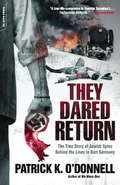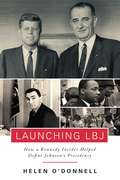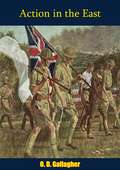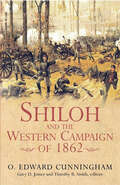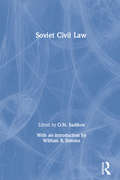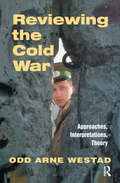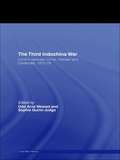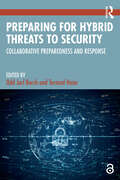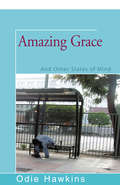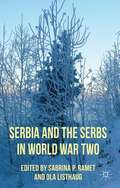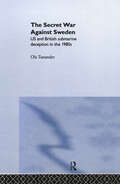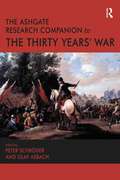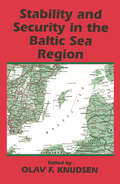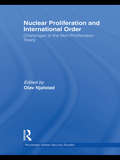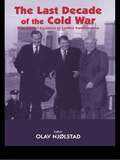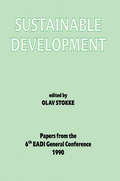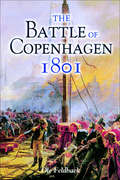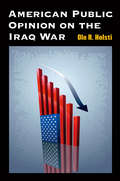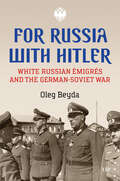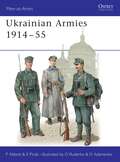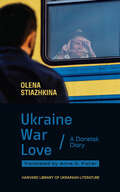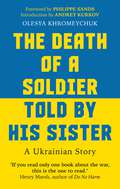- Table View
- List View
They Dared Return: The True Story of Jewish Spies Behind the Lines in Nazi Germany
by O'Donnell Patrick K.At the height of World War II, with the Third Reich’s final solution in full operation, a small group of Jews who had barely escaped the Nazis did the unthinkable: They went back. Spies now, these men took on a dangerous mission behind enemy lines. They Dared Return is their story-a tale of adventure, espionage, love, and revenge.
Launching LBJ: How a Kennedy Insider Helped Define Johnson's Presidency
by O'Donnell HelenKenneth O'Donnell was JFK's Chief of Staff, among the group known as Kennedy's "Irish Mafia." O’Donnell was with Jack Kennedy through his entire time in office… and he was on Air Force One in Dallas, at Jacqueline Kennedy’s side, as Lyndon Johnson got sworn in. When John F. Kennedy was assassinated, LBJ asked Ken O’Donnell to stay on and work with him through the first nine months of his administration, to help the country transition and heal, and to help Johnson set his own agenda for his presidency. Although they were political adversaries, they developed a mutually respectful rapport, and Ken helped LBJ find his voice, starting with his work in voting rights and developing the civil rights agenda. Ken O’Donnell was a prolific diarist and note taker, and in Launching LBJ, his daughter Helen, a respected historian and journalist in her own right, takes her father's journals and fills in the gaps to create an unprecedented, inside look at the early days of President Lyndon Johnson's regime.
Action in the East
by O. D. GallagherThis book, first published during WWII in 1942, is reporter O'Dowd Gallagher's account of nine eventful months in southeastern Asia. During his stay in Singapore, the Japanese bought to fruition their carefully conceived plan for striking simultaneously at Pearl Harbor, Malaya, Hong Kong, the Philippines, and the Netherlands Indies.An absorbing first-hand record of the brutal opening phases of the Second World War in the Far East.
Shiloh and the Western Campaign of 1862
by O. Edward Cunningham“May well be the best, most perceptive and authoritative account of the Battle of Shiloh.” —The Weekly StandardThe bloody and decisive two-day battle of Shiloh on April 6-7, 1862 changed the entire course of the American Civil War. The stunning Northern victory thrust Union commander Ulysses S. Grant into the national spotlight, claimed the life of Confederate commander Albert S. Johnston, and forever buried the notion that the Civil War would be a short conflict.The conflagration had its roots in the strong Union advance during the winter of 1861-1862 that resulted in the capture of Forts Henry and Donelson in Tennessee. The offensive collapsed General Johnston’s advanced line in Kentucky and forced him to withdraw all the way to northern Mississippi. Anxious to attack the enemy, Johnston began concentrating Southern forces at Corinth, a major railroad center just below the Tennessee border. His bold plan called for his Army of the Mississippi to march north and destroy General Grant’s Army of the Tennessee before it could link up with another Union army on the way to join him.On the morning of April 6, Johnston boasted to his subordinates, “Tonight we will water our horses in the Tennessee!” They nearly did so. Johnston’s sweeping attack hit the unsuspecting Federal camps at Pittsburg Landing and routed the enemy from position after position as they fell back toward the Tennessee River. Johnston’s death in the Peach Orchard, however, coupled with stubborn Federal resistance, widespread confusion, and Grant’s dogged determination to hold the field, saved the Union army from destruction. The arrival of General Don C. Buell’s reinforcements that night turned the tide of battle. The next day, Grant seized the initiative and attacked, driving the Confederates from the field. Shiloh was one of the bloodiest battles of the entire war, with nearly 24,000 killed, wounded, and missing.Edward Cunningham, a young Ph.D. candidate, researched and wrote Shiloh and the Western Campaign of 1862 in 1966. Though it remained unpublished, many Shiloh experts and park rangers consider it the best overall examination of the battle ever written. Indeed, Shiloh historiography is just now catching up with Cunningham, who was decades ahead of modern scholarship. Now, Western Civil War historians Gary Joiner and Timothy Smith have resurrected this beautifully written, deeply researched manuscript from undeserved obscurity. Fully edited and richly annotated with updated citations and observations, original maps, and a complete order of battle and table of losses, it represents battle history at its finest.
Soviet Civil Law
by O.N. SadikovThis volume is an unabridged translation of the textbook ‘Soviet Civil Law’, originally published in 1983 under the auspices of the USSR Ministry of Justice. Edited by Professor O.N. Sadikov, the work includes contributions from nine Soviet legal scholars
Reviewing the Cold War: Approaches, Interpretations, Theory (Cold War History)
by Odd Arne WestadSince the cold war ended, it has become an international field of study, with new material from China, the former Soviet Union and Europe. This volume takes stock of where these new materials have taken us in our understanding of what the cold war was about and how we should study it.
The Global Cold War: Third World Interventions and the Making of Our Times
by Odd Arne WestadThe Cold War shaped the world we live in today -- its politics, economics, and military affairs. This book shows how the globalization of the Cold War during the last century created the foundations for most of the key conflicts we see today, including the War on Terror. It focuses on how the Third World policies of the two twentieth-century superpowers - the United States and the Soviet Union - gave rise to resentments and resistance that in the end helped topple one superpower and still seriously challenge the other. Ranging from China to Indonesia, Iran, Ethiopia, Angola, Cuba, and Nicaragua, it provides a truly global perspective on the Cold War. And by exploring both the development of interventionist ideologies and the revolutionary movements that confronted interventions, the book links the past with the present in ways that no other major work on the Cold War era has succeeded in doing.
The Third Indochina War: Conflict between China, Vietnam and Cambodia, 1972-79 (Cold War History #Vol. 11)
by Odd Arne Westad Sophie Quinn-JudgeThis new collection explores the origins and key issues of the Third Indochina War, which began in 1979. Drawing on unique documentation from all sides, leading contributors reinterpret and demystify the long-term and immediate causes of the Vietnamese-Cambodian and Sino-Vietnamese conflicts. They closely examine how both the links between policies and policy assumptions in the countries involved, and the dynamics - national, regional and international - drove them towards war. Rather than explaining the conflicts as determined by age-old resentments and suspicions or seeing war between the former allies as the necessary outcome of the conflicts of the 1970s, the contributors to this volume look at the concrete causes for the breakdown in cooperation and the road to war. This volume includes even-handed assessments of the roles of the major players, including a look at the beginnings of Thai-Chinese military cooperation in support of the Khmer Rouge. The subjects covered remain highly relevant to inter-state relations in South East Asia, where border issues are still a cause of tension. An updated chronology of events leading to the outbreak of hostilities is also included. This book will be of immense interest to all students of the Third Indochina War, Southeast Asian history and of international relations and war studies in general.
Preparing for Hybrid Threats to Security: Collaborative Preparedness and Response
by Tormod Heier Odd Jarl BorchThis book examines hybrid threats within the broader context of a security crisis in Europe.As geopolitical tensions increase and great power rivalries intensify, can states protect their communities? While conventional wars are fought, parallel battles take place by more subtle and non-violent means. This multi-disciplinary book examines how hybrid threats undermine political governance and social stability in liberal democracies, covering aggressors, targeted states and victimized communities. It seeks to address how aggressor states undermine liberal democracies under the threshold of conflict, and the role played by hybrid threats as aggressor states prepare for full-scale war. The chapters also explore how liberal democracies organize and interact to detect hybrid threats, arguing that, in order to increase resilience, politicians and government agencies must involve the private sector and citizens in threat-reduction policies. The analysis builds upon the latest research in the international crisis management literature.This book will be of interest to students of security studies, hybrid warfare, defence studies and International Relations, as well as professional practitioners.The Open Access version of this book, available at http://www.taylorfrancis.com, has been made available under a Creative Commons Attribution (CC-BY) 4.0 license.
Amazing Grace: And Other States of Mind
by Odie HawkinsAn enchanting intro to a collection of unforgettable characters--Elizabeth, "Queen of the Projects"; the girl "Billie" who sings like Lady Day; young Randolph who, to his family's embarrassment, grows a second head for a while; Dean Dale Jackson, talented writer, sculptor, auto mechanic, and dedicated to the underbelly of a bottle; the Vernon family upwardly mobile but required by a will to grow cotton in their suburban backyard; and Marlene and James, who find happiness in an unexpected way, in marriage.
An Assessment of the International Science and Technology Center: Redirecting Expertise in Weapons of Mass Destruction in the Former Soviet Union
by Office of International AffairsThis report reviews the ISTC's objectives and plans, discussed its activities with U.S. and FSU officials, and met with FSU grant recipients and institute directors. The committee concludes that during its first two years the ISTC was successful and effective in meeting its primary objective, which, in turn, has contributed to the larger goal of diminishing the risk of weapons proliferation. Moreover, the opportunities provided to FSU scientists and engineers do indeed offer meaningful nonweapons-related work, which helps address the demoralization that may otherwise contribute to scientists' being lured into work for unfriendly governments. The committee believes the ISTC has also been successful in addressing its secondary objectives—namely, the solution of national and international technical problems; the support of basic and applied research and technology development for peaceful purposes; and, to a lesser degree, reinforcement of the transition of the FSU to a market-driven economy.
Serbia and the Serbs in World War Two
by Sabrina P. Ramet Ola ListhaugA valuable and objective reassessment of the role of Serbia and Serbs in WWII. Today, Serbian textbooks praise the Chetniks of Draža MIhailovi? and make excuses for the collaboration of Milan Nedi?'s regime with the Axis. However, this new evaluation shows the more complex and controversial nature of the political alliances during the period.
The Secret War Against Sweden: US and British Submarine Deception in the 1980s (Cass Series: Naval Policy And History Ser. #Vol. 21)
by Ola TunanderFollowing the stranding of a Soviet Whiskey-class submarine in 1981 on the Swedish archipelago, a series of massive submarine intrusions took place within Swedish waters.However, the evidence for these appears to have been manipulated or simply invented. Classified documents and interviews point to covert Western, rather than Soviet activity. This
The Ashgate Research Companion to the Thirty Years' War
by Olaf Asbach Peter SchröderThe Thirty Years’ War (1618-1648) remains a puzzling and complex subject for students and scholars alike. This is hardly surprising since it is often contested among historians whether it is actually appropriate to speak of a single war or a series of conflicts. Similarly emphasis is also put on the different motives for going to war, as conflicting religious and political interests were involved. This research companion brings together leading scholars in the field to synthesize the range of existing research on the war, which is still fragmented and divided along national historical lines, and to further explore the complexities of the conflict using an innovative comparative approach. The companion is designed to provide scholars and graduate students with a comprehensive and authoritative overview of research on one of the most destructive conflicts in European history.
Stability and Security in the Baltic Sea Region: Russian, Nordic and European Aspects
by Olav F. KnudsenThe book examines the security puzzles posed by the remaining legacies of dominance and conflict in the Baltic Sea region as governments seek to integrate the three Baltic sates in a more stable system of cooperative security.
Nuclear Proliferation and International Order: Challenges to the Non-Proliferation Treaty (Routledge Global Security Studies)
by Olav NjølstadThis book examines the state of the nuclear non-proliferation regime and the issues it faces in the early 21st century. Despite the fact that most countries in the world have signed the Non-Proliferation Treaty (NPT) there is growing concern that the NPT is in serious trouble and may not be able to stop the further spread of nuclear weapons. If so, international stability will be undermined, with potentially disastrous consequences, and the vision of a nuclear weapon-free world will become utterly unrealistic. More specifically, the NPT is exposed to four main challenges, explored in this book: challenges from outside, as three countries that have not signed the Treaty – Israel, India and Pakistan – are known to possess nuclear weapons; challenges from within, as some countries that have signed on to the Treaty as non-nuclear weapons states have nevertheless developed or are suspected to be trying to develop nuclear weapons (North Korea and Iran being cases in point); challenges from below in the shape of terrorists and other non-state actors who may want to acquire radioactive materials or even nuclear weapons; and, finally, challenges from above due to the perceived failure of the five legal nuclear weapons states to keep their part of the ‘double bargain’ made by the parties of the NPT and take serious steps towards nuclear disarmament. This book will be of much interest to students of nuclear proliferation, international security, war and conflict studies and IR in general.
The Last Decade of the Cold War: From Conflict Escalation to Conflict Transformation (Cold War History)
by Olav NjølstadThe 1980s was a period of almost unprecedented rivalry and tension between the two main actors in the East-West conflict, the United States and the Soviet Union. Why and how that conflict first escalated and thereafter, in an amazingly swift process, was reversed and brought to its peaceful conclusion at the end of the decade is the topic of this volume.With individual contributions by eighteen well-known scholars of international relations and history from various countries, the book addresses the role of the United States, the former Soviet Union, and the countries of western and eastern Europe in that remarkable last decade of the Cold War, and discusses how particular events as well as underlying political, ideological, social, and economic factors may have contributed to the remarkable transformation that took place.
The Norwegian Intelligence Service, 1945-1970 (Studies in Intelligence)
by Olav RisteThis is a history of the Norwegian Intelligence Service (NIS) during the Cold War, based on its secret archives. The author describes a service that grew from a handful of specialists in 1946 to a multi-faceted organization with a personnel of about 1000 by the end of the 1960s.
Sustainable Development
by Olav StokkeFirst published in 1991. Routledge is an imprint of Taylor & Francis, an informa company.
The Battle of Copenhagen, 1801: Nelson's Historic Victory
by Ole FeldbaekA leading Danish historian presents a detailed account of the epic naval conflict between Denmark and a British fleet led by Vice Admiral Nelson. Fearing an alliance between Denmark and France, Britain sent a fleet of more than fifty ships to form a blockade off Great Yarmouth to prevent collaboration and ensure its naval superiority. But a series of diplomatic failures sent Vice Admiral Horatio Nelson into battle at Copenhagen. Written by the leading Danish authority on the period, this splendid work brings to life Nelson&’s historic victory immortalized by his so famously turning a blind eye to his superior&’s order to halt operations. As well as describing the brilliance of the British tactics, the work fascinatingly reveals the desperate action and great bravery displayed by the Danish defenders who suffered appallingly in the fighting.
American Public Opinion on the Iraq War
by Ole R. Holsti"A substantial contribution to understanding the role of public opinion and the news media during the Iraq War. Equally impressive, it effectively puts the domestic context of U. S. policy in historical perspective, making the book useful to historians as well as to political scientists. " ---Ralph B. Levering, Davidson College "American Public Opinion on the Iraq Warsets out to chart against a detailed account of the war a nuanced assessment of how public opinion on the conflict evolved, the partisan differences that emerged, how the issue affected other areas of foreign policy opinion, and the limits of public opinion on policy. It succeeds at all of this, and it does so in a manner that is at once informative, inherently interesting, and exceptionally easy to read. " ---Randolph M. Siverson, University of California, Davis Ole R. Holsti explores the extent to which changes in public opinion reflected the vigorous public relations efforts of the Bush administration to gain support for the war and the partisanship marking debates over policies toward Iraq. Holsti investigates the ways in which the Iraq experience has led substantial numbers of Americans to reconsider their nation's proper international role, and he assesses the impact that public opinion has had on policymakers. Significantly, Holsti places his findings in a broader context to address the role of public opinion and of the media in democratic governance.
For Russia with Hitler: White Russian Émigrés and the German-Soviet War
by Oleg BeydaThe Bolshevik takeover of Russia created an alternative Russia in exile that never laid down its arms. For two decades, expelled White Russians sought ways to retaliate against the Soviet Union and return home. Their irreconcilability was galvanized by a superstructure, the dominant military organization, the Russian All-Military Union (ROVS). Eventually, militant anti-Bolshevism led the exiled Russians into alliance with Nazi Germany, despite the latter’s anti-Slavic stance. For Russia with Hitler tells the story of how thousands of White Russian émigrés joined the German invasion of the Soviet Union as soldiers, translators, and civilian workers. Oleg Beyda investigates and contextualizes émigré collaboration with National Socialist Germany, explaining how it was possible for Russians to fight against the Russians. The book reveals that the exiles, although united ideologically by Russian nationalism in a general sense, did not establish one single, clear-cut political solution for a future “liberated Russia.” Drawing on wide archival material, For Russia with Hitler details the background and ideological framework of the émigrés, how they rationalized their support for Nazism, and what they did on the Eastern Front, including their reactions to life in occupation, war crimes, and the Holocaust.
Ukrainian Armies 1914-55
by Peter Abbott Oleksiy RudenkoThere can be no region in Europe whose history has been more tortured than Ukraine. During the 20th century Austria, Poland, Russia, Germany, Hungary, Czechoslovakia and Romania vied for power over parts of this vast and fragmented area; and its divided peoples rose time and again in vain attempts to win their independence. For the first time in the West, this book gives a succinct summary of all the different armed forces raised among the Ukrainians, and of their uniforms and insignia. These are illustrated in colour and in a selection of extremely rare photographs, dating from World War I (1914-1918) to the aftermath of World War II (1939-1945), when Ukrainian guerrillas continued to defy the Soviet authorities until the mid-1950s.
Ukraine, War, Love: A Donetsk Diary (Harvard Library of Ukrainian Literature #7)
by Olena StiazhkinaIn Ukraine, War, Love, Olena Stiazhkina depicts day-to-day developments in and around her beloved hometown Donetsk during Russia’s 2014 invasion and occupation of the Ukrainian city. An award-winning fiction writer, Stiazhkina chronicles an increasingly harrowing series of events with sarcasm, anger, humor, and love.The diary opens on March 2, 2014, as the first wave of pro-Russian protest washes over eastern Ukraine in the wake of Euromaidan, the Revolution of Dignity, and it closes on August 18, 2014, the day a convoy of civilian Ukrainian refugees is deliberately slaughtered by Russian forces. Early on, Stiazhkina is captured by pro-Russian forces while she browses for books but is freed when one of her captors turns out to be a former student. Vignettes from her personal life intermingle with current events, and she examines ordinary people in extraordinary circumstances. We walk with local dogs and their owners; we meet a formidable apartment building manager who shames occupiers and dismantles their artillery from the roof of her building; we follow a family evacuated to Kyiv whose young son builds checkpoints out of Legos. Olena Stiazhkina’s Ukraine, War, Love: A Donetsk Diary is a fierce love letter to her country, her city, and her people.
The Death of a Soldier Told by His Sister
by Olesya KhromeychukA moving and thought-provoking story of loss and war from the Director of the Ukrainian institute, told in a powerful blend of memoir and essay***'Elegantly written... packed with the sharpness of moments when a death suddenly becomes real' -TLS'If you want to understand Ukraine's determination to resist, Olesya Khromeychuk's book is essential.' -Paul Mason, author of How to Stop Fascism'Moving, intelligent, and brilliantly written.' -Anna Reid, author of Borderland: A Journey Through the History of UkraineWITH A FOREWORD BY PHILIPPE SANDS AND AN INTRODUCTION BY ANDREY KURKOV Killed by shrapnel as he served in the Ukrainian Armed Forces, Olesya Khromeychuk's brother Volodymyr died on the frontline in eastern Ukraine. As Olesya tries to come to terms with losing her brother, she also tries to process the Russian invasion of Ukraine: as an immigrant living far from the frontline, as a historian of war and how societies respond to them, and as a woman, a civilian, and a sister.In this timely blend of memoir and essay, Olesya Khromeychuk tells the story of her brother - the wiser older sibling, the artist and the soldier - and of his death. Deeply moving and thoughtful, The Death of a Soldier Told by His Sister picks apart the ways political violence shapes everyone and everything it touches and depicts with extraordinary intimacy the singular and complicated bond between a brother and sister. Olesya's vivid writing is a personal and powerful commitment to honesty in life, in death and in memory.'Soon before he died, my brother said he had become a warrior. Why would a thinker, an artist, wish to become a soldier? Perhaps I didn't appreciate what it meant to be a thinker and an artist, or, maybe, what it meant to be a soldier.''In vivid, intimate prose and with unflinching honesty, Olesya Khromeychuk introduces us to the brother she lost in the war and found in her grief.' -Dr Rory Finnin, University of Cambridge'I admire a book that invites me to grapple with knotty questions. Olesya Khromeychuk has written such a book - beautifully.' - Professor Cynthia Enloe, author of Nimo's War
